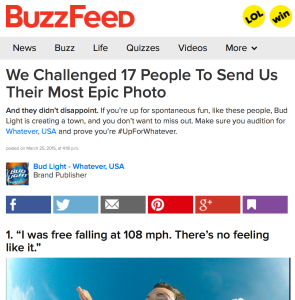By Adam Smith
After working too long at tiny newspapers around Boston, I finally got
my break — a job as a copy editor in the Boston Herald’s business
section. It was 2008, just as smartphones were about to change how we
present and get the news, and years after the creations of YouTube,
Twitter and Facebook.
Yet, at the Herald, Atex computer terminals still dominated the newsroom.
For those who don’t know what Atex machines are, I’ll explain. They were cruel, crude and unforgiving computers, with one-color screens, usually green on black. They had no spell-check capabilities, no ability to browse the Web — save for wire feeds — and they crashed nearly every night before deadline. They were also efficient for producing print newspapers, which was probably why decades after they were installed in the Herald’s desks, they were still in use.
I would have to use these machines not only for copy editing, but for writing headlines. If there was a good reason to have a panic attack the first day on the job, this was it.
The Herald has been long known for its headlines. We believed that a certain other newspaper’s were mostly long and boring, and ours were short and sparky. For the paper to sell, and at the same time for people
to read it with ease, the headlines had to be witty and well written. It
was to be a big part of the job, and I still don’t know how I made it
through the paper’s probation period, but I did. As it turned out,
writing on Atex would prove good training, in the same kind way that
learning how to ride a bicycle with no helmet or training wheels down
Comm. Ave. at rush hour would: If you mess up, you’re screwed.
No one ever told me how to pen headlines at the Herald, but they guided me and led by example. The expectations were always high. These headlines had to, first, be true to the story, giving the reader an accurate set of clues as to what he would be reading about. Second, they had to be clear and concise. Third, they had to be fun to read, or, better, clever.
But, equally as critical, they had to fit the space of the tabloid. This often meant they were limited to five or six words, sometimes only four.
The last part is where the beauty of Atex came in. You were given a set of requirements for what your headline would be — number of letters, size and typeface — and you had no choice but to meet them. Atex wouldn’t let you tinker around by writing too long or too short. And even if it did, the head copy editor would make sure the headline went right back to you for a rewrite, or worse, he just rewrote the damn
thing for you. It was a tough but efficient way to learn how to write good headlines. I came to appreciate that headline writing should be a painful, practical art, just as the rest of journalism is. And constraints are part of what make it an art. It’s just like a haiku — it wouldn’t be a haiku if the poem could be 30 lines long.
 Years later, I got a Web writing gig elsewhere and received a memo on so-called “social” headline writing tips. They were all things I would
have avoided at the Herald, and probably things that would have gotten
me made fun of there, too. The list encouraged writing lists, using
odd-numbered lists, and including words such as “smart,” “surprising,”
“huge,” “doing” and “saying.” It advised against being too clever.
Years later, I got a Web writing gig elsewhere and received a memo on so-called “social” headline writing tips. They were all things I would
have avoided at the Herald, and probably things that would have gotten
me made fun of there, too. The list encouraged writing lists, using
odd-numbered lists, and including words such as “smart,” “surprising,”
“huge,” “doing” and “saying.” It advised against being too clever.
The advice was no doubt based on some type of Web-headline writing formula, as I see these types of titles all over the Internet. These headlines are usually lists (like “19 Male Characters Who Are Obviously
Hufflepuffs” from BuzzFeed), questions (like “Is Rand Paul Sexist or
just a Jerk?” from Slate) or writing that’s too long and tries to
sound conversational (like “Rick Porcello Didn’t Have to Be an Ace to Do
His Job in the Red Sox Home Opener” from Boston.com). Then there’s the
CNN favorite: “Here’s What We Know About…” or “Here’s What We Don’t Know About…” headlines. How many question headlines will lure us into
a story? How many lists can we take before realize our lives have too
many lists and they start to seem like work?
While headlines based on the best of the newspaper model tease at our curiosity and or compel us to read, especially if their stories are also compelling, these increasingly popular made-for-Web headlines were interesting when they first appeared, but now are mostly just tiring
and, often worse, biased and misleading.
As the Rand Paul headline shows, how can journalists expect to keep credibility when headlines (and stories) like these are written? Question headlines can even be misleadingly dangerous, which is I why I was told at the Herald to avoid writing them. By asking something you cannot assert, you plant an idea, possibly a biased or incorrect one, into readers’ minds.
I remember when living in Japan last year, I was struck by such reckless headlines from respectable online publications. “Will Japan and China Go to War?” was written by Time, and “Will Japan Abandon Pacifism?” was
written by The Atlantic. Why not write something more exact such as
“China and Japan Edge Closer to War” or “Japan to Shed Pacifist Past”?
Probably because neither is true. But yet those are the impressions I
got when reading the two headlines. Those kinds of headlines are like if your co-worker asks you, “Do you think Jim is a pervert?” Of course! Jim must be a perv! Because now that you asked I can’t shake that image from my head!
Question headlines were rare at the Herald, and usually when we used them, they weren’t really questions. I still remember one I wrote for a story by the awesomely prolific Laurel Sweet. It read: “Dying for a Snack?” The subhead, I think, explained the rest: “Bill Would Allow Munchies at Funerals.”
While we run to embrace all that we’re told we should do in the brave new world of electronic journalism — often with the promise it will bring back readers and their money — we shouldn’t forget what got us here in the first place: Journalism as it has been practiced — and refined — for the past many decades.
And, in case you’re wondering, no, we should not bring back the Atex machines.
Adam Smith worked as a staff copy editor at the Boston Herald from 2008 to 2013 and occasionally freelances for the newspaper as well as other publications, online and in print. He can be reached at smith_dam {at} neomailbox {dot} ch.





